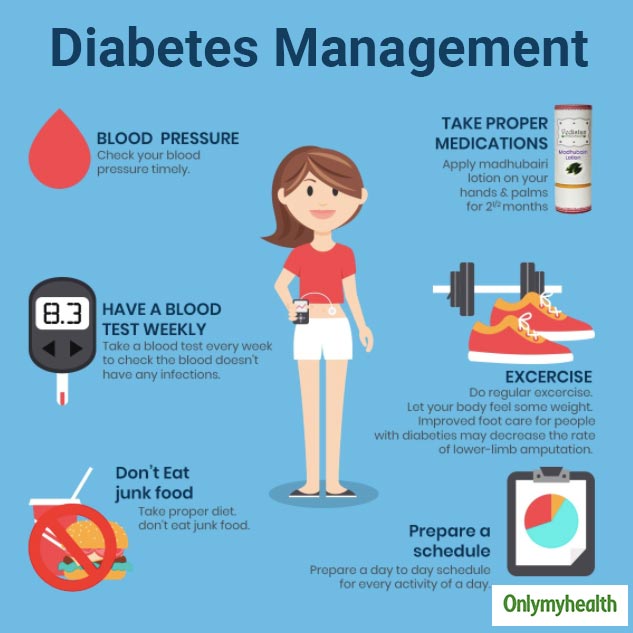
Managing diabetes involves multiple strategies to control blood sugar levels, maintain a healthy lifestyle, and prevent complications. Here’s a breakdown of essential elements in diabetes management:
- Blood Sugar Monitoring
Regularly checking blood sugar levels is key to managing diabetes effectively.
People with Type 1 diabetes or those using insulin often monitor several times a day. Continuous glucose monitors (CGMs) can provide real-time data and trend analysis.
- Healthy Eating
Balanced Diet: Focus on nutrient-rich foods, like vegetables, lean proteins, healthy fats, and whole grains.
Carbohydrate Counting: Carbs have the greatest impact on blood sugar, so understanding carb intake is crucial, especially for insulin users.
Low Glycemic Foods: Foods with a lower glycemic index (GI) can prevent sudden spikes in blood sugar.
Regular Meal Timing: Eating meals at regular intervals helps maintain steady blood sugar levels.
- Physical Activity
Exercise improves insulin sensitivity and helps with weight management, both of which are beneficial for blood sugar control.
Aim for at least 150 minutes of moderate activity per week (e.g., walking, swimming, cycling), along with strength training exercises.
- Medication and Insulin Management
Type 1 Diabetes: Insulin therapy is essential. This includes rapid-acting, long-acting, or mixed insulins.
Type 2 Diabetes: May require oral medications like metformin, GLP-1 agonists, or SGLT2 inhibitors, and some may eventually need insulin.
Adherence to Prescriptions: Taking medication as prescribed is essential for maintaining stable blood sugar levels.
- Weight Management
Achieving and maintaining a healthy weight can help improve insulin sensitivity and reduce the risk of complications.
For those with Type 2 diabetes, even a 5-10% reduction in body weight can significantly impact blood sugar levels.
- Stress Management
Stress can elevate blood sugar levels due to the release of stress hormones.
Techniques like deep breathing, meditation, and yoga can be helpful. Engaging in hobbies and ensuring adequate rest also support stress management.
- Regular Health Check-Ups and Screening
Regular check-ups for HbA1c levels, cholesterol, kidney function, and blood pressure help monitor diabetes management and detect any complications early.
Eye exams, dental check-ups, and regular foot care are also essential, as diabetes can affect these areas.
- Foot Care
Poor circulation and neuropathy can lead to foot problems. Daily inspection of feet, keeping them clean and dry, and wearing well-fitted shoes can help prevent injuries and infections.
- Education and Support
Diabetes education provides information on managing diabetes, handling emergencies, and understanding complications.
Support groups and counseling can offer encouragement, practical tips, and emotional support.
- Preventive Measures for Complications
Heart Health: Since diabetes raises the risk of heart disease, managing blood pressure and cholesterol is important.
Kidney Health: Regular urine and blood tests help monitor kidney function.
Nerve Protection: Keeping blood sugar levels in check reduces the risk of diabetic neuropathy.
- Emergency Preparedness
Be aware of signs of low (hypoglycemia) and high (hyperglycemia) blood sugar and know how to respond.
Carry quick sources of glucose (like glucose tablets) and have a medical ID indicating diabetes.
Successful diabetes management requires consistency, monitoring, and proactive measures, making it possible to lead a healthy and active life with diabetes.
